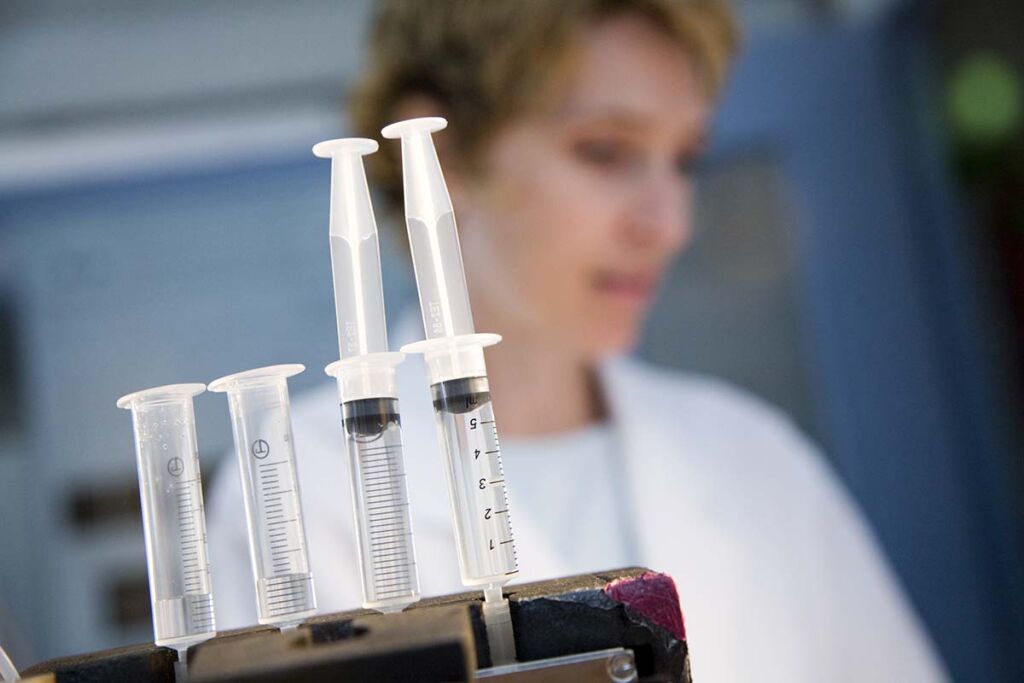Continuing with IDeas for structuring a large university
On July1, two flagship UM projects were selected to be part of the new Investment for the Future Program (PIA3) initiative reserved for IdEx and ISITE projects. With an additional $23 million in funding, UM is continuing on its path toward establishing a major research university with close ties to education.

UM2030 and UMGS, which stands for "University of Montpellier Graduate School," are the names of the two projects successfully presented by UM to the international jury of the Investment for the Future Program (PIA3) as part of the "Major Research Universities" initiative. These acronyms refer to two very concrete programs that aim to continue and finalize the transformation effort initiated by the University in 2017 and the awarding of the ISITE label.
12 million for training through research
Immersing students in research laboratories from the first year of their master's degree and, eventually, from their bachelor's degree onwards. This is the DNA of the newUniversity of Montpellier Graduate School(UMGS), which will be launched at the start of the 2021 academic year in response to the call for projects entitled "Structuring training through research in initiatives of excellence"(SFRI).
Over the two years of the master's program, twelve months will be devoted to learning about research in laboratories or at UM partner companies. "Our goal is to strengthen the links between master's-level training and research in our laboratories, in order to give our students the keys to seize the opportunities of tomorrow's world," explains François Pierrot, Executive Director of MUSE and Vice President in charge of innovation.
Nine master's degree programs
Students interested in this unique educational offering will initially have a choice of nine multidisciplinary master's programs taught entirely in English. "These UMGS-certified programs will be part of existing majors, while facilitating and expanding bridges between disciplines. A student studying ecology who wishes to specialize in biodiversity conservation will be able to access law courses much more easily than is currently the case," explains Agnès Mignot, project manager for "Support for the institution's research-related projects."
The funding obtained will, among other things, enable the partner researchers involved in this master's program to be better recognized, finance doctoral students so that they can play an important role in this training, and, of course, support the laboratories, as Agnès Mignot points out: "We are going to ask them to take on many more students, who will need to be remunerated. This will represent a significant portion of our budget."
11 million for the "UM2030" integration project
In line with the development of MUSE, the UM2030 program is a response to the call for projects called IDéES for " Integration and Development of IdEx and ISITE," in which UM proposes large-scale actions responding to five major challenges. Gender equality with the "Beyond HRS4R" program, which aims to increase the number of women in leadership positions in research centers and administrative departments. Sustainable development through "Green Initiatives" to raise awareness among staff and students about reducing their impact on carbon emissions, and the "Data Science for All Sciences" program for a sustainable transformation of digital practices.
International appeal is also a priority with the "Strategic International Partnerships" program. Its goal? To make UM a key player on the international stage in three areas: Feeding, Caring, and Protecting. Finally, strengthening the link between the University and the local innovation ecosystem with the "Innovation Campus" plan. For François Pierrot, "this $11 million in funding will enable us to finalize the structuring of a major university, the hub of a partnership-based higher education and research system rooted in its territory and resolutely committed to global competition in the knowledge economy."
Continue our "collective efforts"
These 23 million euros are in addition to the funds already committed to the University by the PIA since 2011 (Labex, Equipex, ISITE, etc.). "We are currently awaiting the jury's recommendations to finalize these two projects and obtain definitive approval of the funding by the jury," said Philippe Augé, President of the University of Montpellier. " These additional resources will help us continue our collective efforts to build this major research university in Montpellier, with a strong and unique identity that is recognized throughout the world."